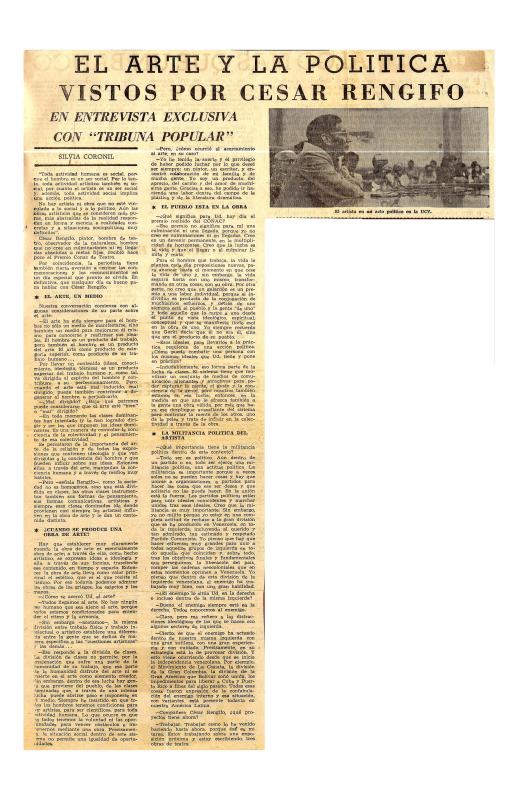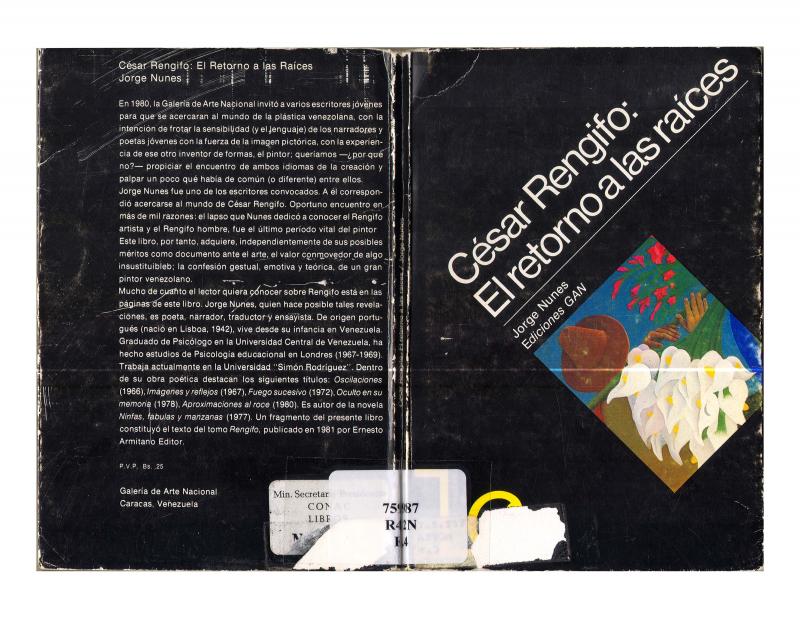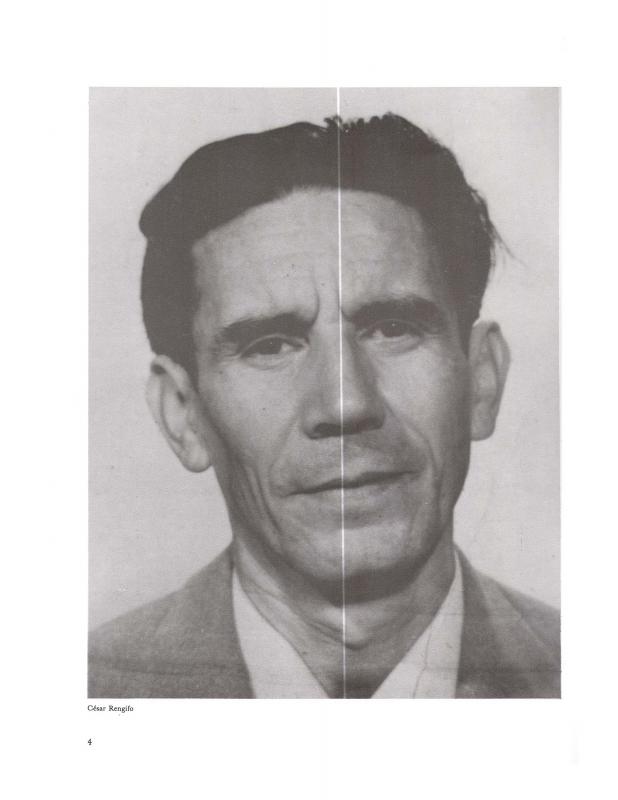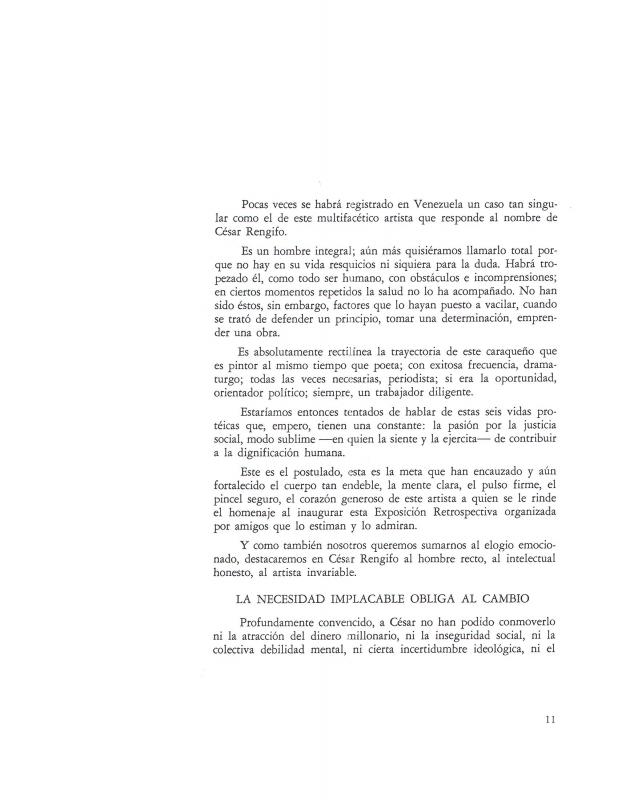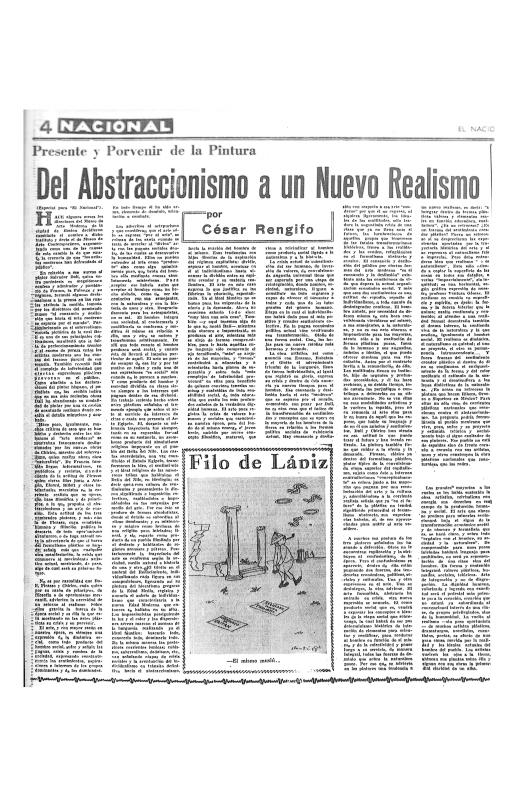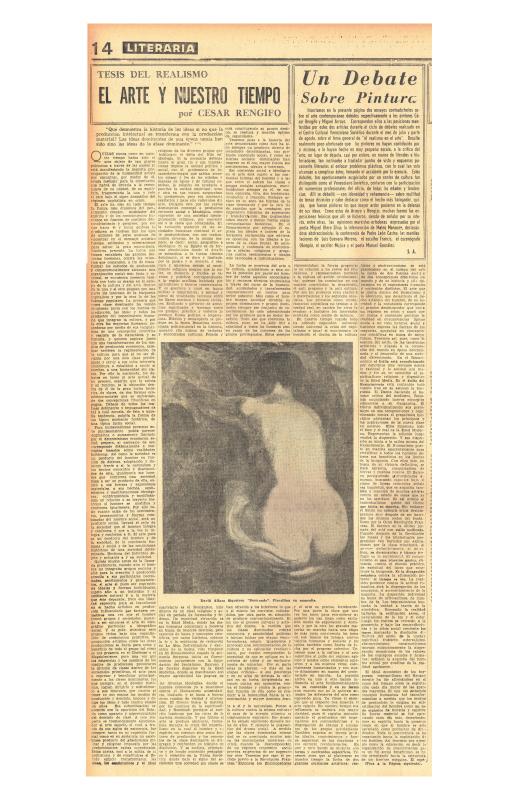During the series of debates called “El realismo en el arte” at the Instituto Cultural Venezolano-Soviético (Caracas, 1948), the Venezuelan painter César Rengifo (1915–80) argued for social realism and against Abstract art. His basic point was what is known as “La tesis del realismo” [the thesis of Realism], which he used to defend socio-political art against “art for art’s sake” that is indifferent to social problems. A year later, in 1949, the debate that pitted Realist art against Abstract art once again overflowed into the public arena. The press picked up the story of the debate after Alejandro Otero exhibited his series Las Cafeteras for the first time on January 30, 1949 at the Museo de Bellas Artes de Caracas. This was a groundbreaking exhibition for Venezuelan modernism because it introduced a local version of Abstract painting. Articles appeared in the press and a few magazines (both for and against Otero), and it wasn’t long before the group of Venezuelan artists who had settled in Paris in 1945 were involved in the debates. Rengifo does not refer expressly to Otero’s exhibition, but the article was published just as the discussion about the young painter’s work was warming up. By discussing the situation while avoiding any direct references, and sticking to a strategy based on argument and theory, Rengifo may have intended to seize the opportunity to restate his views on social realism. The article did not mention any artists in particular, nor did it indulge in any excessively moralistic criticism about the life of the Venezuelans living in Paris at the time, unlike the Realist painter Pedro León Castro, who did. Rengifo based his critique of what he considered the “lies” of Abstract art on its political orthodoxy.
This article appeared in the first edition of Fuentes documentales y críticas de las artes plásticas venezolanas: siglos XIX y XX (Caracas, Universidad Central de Venezuela, 2001), produced by Roldán Esteva-Grillet.
To read other documents about this artist’s work, see the journalist Silvia Coronil’s interview in which Rengifo talks about the CONAC [Consejo Nacional de la Cultura] prize he was awarded, “El arte y la política vistos por César Rengifo. En entrevista exclusiva con ‘Tribuna Popular’” [doc. no. 1172426]; the essayist Jorge Nunes’ interview “César Rengifo: el retorno a las raices” [doc. no. 1101822]; and Irma Valero’s interview “César Rengifo: ‘No hay arte sin ideología’” [doc. no. 1141917]; the essay by Pedro Beroes “Viva memoria de César Rengifo” [doc. no. 1141854], José María Salvador’s “César Rengifo. El drama humano” [doc. no. 1101982)], and José Ratto Ciarlo’s “Retrospectiva de César Rengifo 1931?1974” [doc. no. 1101966]. See also Rengifo’s articles “Del abstraccionismo a un nuevo realismo. Presente y porvenir de la pintura” [doc. no. 1074194], and “Tesis del realismo. El arte y nuestro tiempo” [doc. no. 810019].

